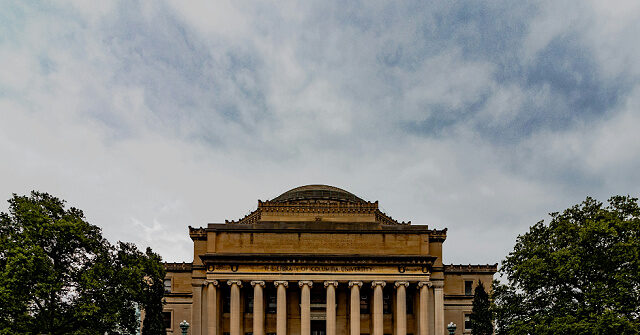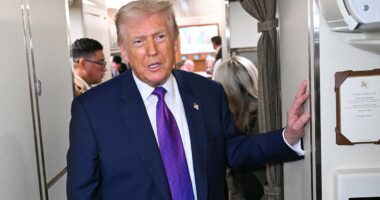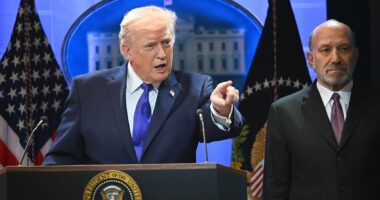Share this @internewscast.com
Columbia University reached an agreement with the Trump administration to resolve allegations that the university did not adequately address antisemitism on campus. This agreement was part of a significant settlement reached on Wednesday to reinstate the school’s federal research funding, the university reported.
On Thursday, Columbia University stated that it has consented to pay the Trump administration $200 million over a span of three years, along with $21 million to conclude Equal Employment Opportunity Commission investigations (EEOC). In return, the university will regain access to $400 million in halted federal grants and the majority of its annual $1.3 billion federal funding. The Trump administration had previously rescinded $400 million in federal grants and contracts to the university, accusing it of failing to respond “to the persistent harassment of Jewish students.”
“I recognize these are substantial settlements. As Acting President, together with our Board of Trustees, we had to look at all the facts … The prospect of that continuing indefinitely, along with the potential loss of top scientists, would jeopardize our status as a world-leading research institution,” Columbia University Acting President Claire Shipman said in a statement.
“Furthermore, as I have discussed on many occasions with our community, we carefully explored all options open to us. We might have achieved short-term litigation victories, but not without incurring deeper long-term damage — the likely loss of future federal funding, the possibility of losing accreditation, and the potential revocation of visa status of thousands of international students,” she continued.
As part of the deal, Columbia also pledged to follow through on commitments it made in March to combat antisemitism and violence on campus, and promised to reject DEI policies in favor of following civil rights laws banning consideration of race in admissions and hiring.
The school’s deal with the Trump administration settles more than half a dozen open civil rights investigations into the university and brings on an independent monitor agreed to by both the school and the federal government to report on the university’s progress every six months.
Shipman said the university has not admitted to violating civil rights laws as part of the settlement, although she said the school does not deny the “very serious and painful challenges our institution has faced with antisemitism.” Shipman noted that Columbia “retains control over its academic and operational decisions,” and the federal government “will not dictate what we teach, who teaches, or which students we admit.”
“This agreement marks an important step forward after a period of sustained federal scrutiny and institutional uncertainty,” Shipman said. “The settlement was carefully crafted to protect the values that define us and allow our essential research partnership with the federal government to get back on track.”
The resolution agreement is a significant win for the Trump administration, which cracked down on the funding of Columbia and other elite universities to root out DEI and antisemitism, among other civil rights issues. Columbia is the first university to settle with the administration over allegations of antisemitism. Harvard has sued the Trump administration over cuts to funding, although the school is also in negotiations: “the expectation is that the Columbia settlement will provide a template for future deals,” The New York Times reported.
Shipman, who has been acting president since late March, said in an interview this week that she engaged in several months of intense negotiations with the administration and worked with the board of trustees, attorneys, and an academic leadership team to make the White House’s demands workable for the university.
“Ultimately, we had to make the decision that was the right decision for Columbia,” she said. “And I think we have made that decision. We weren’t reckless. In my view, it was important to slow things down and be extraordinarily deliberate, and that was actually quite hard to do.”
Katherine Hamilton is a political reporter for – News. You can follow her on X @thekat_hamilton.

















